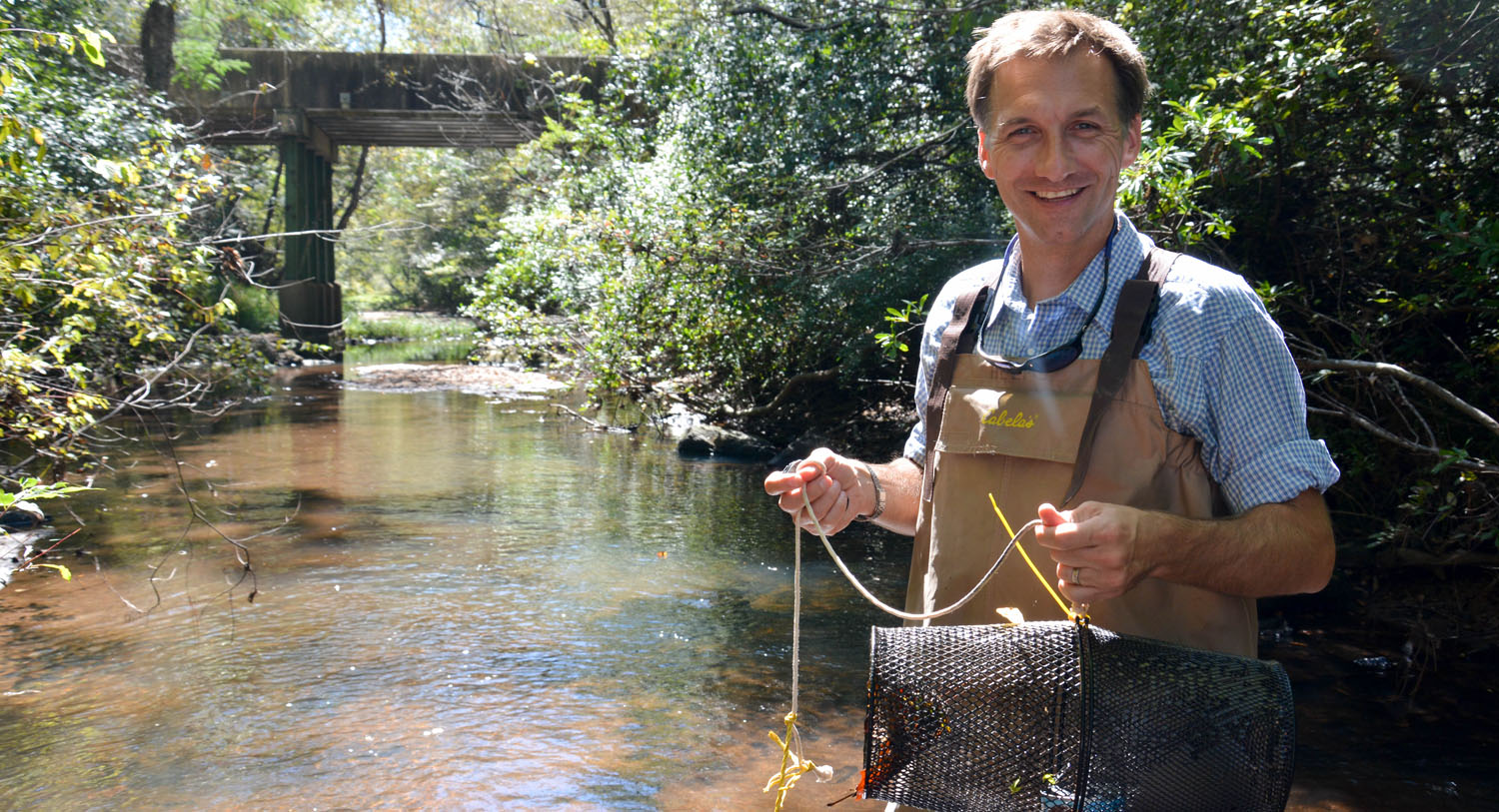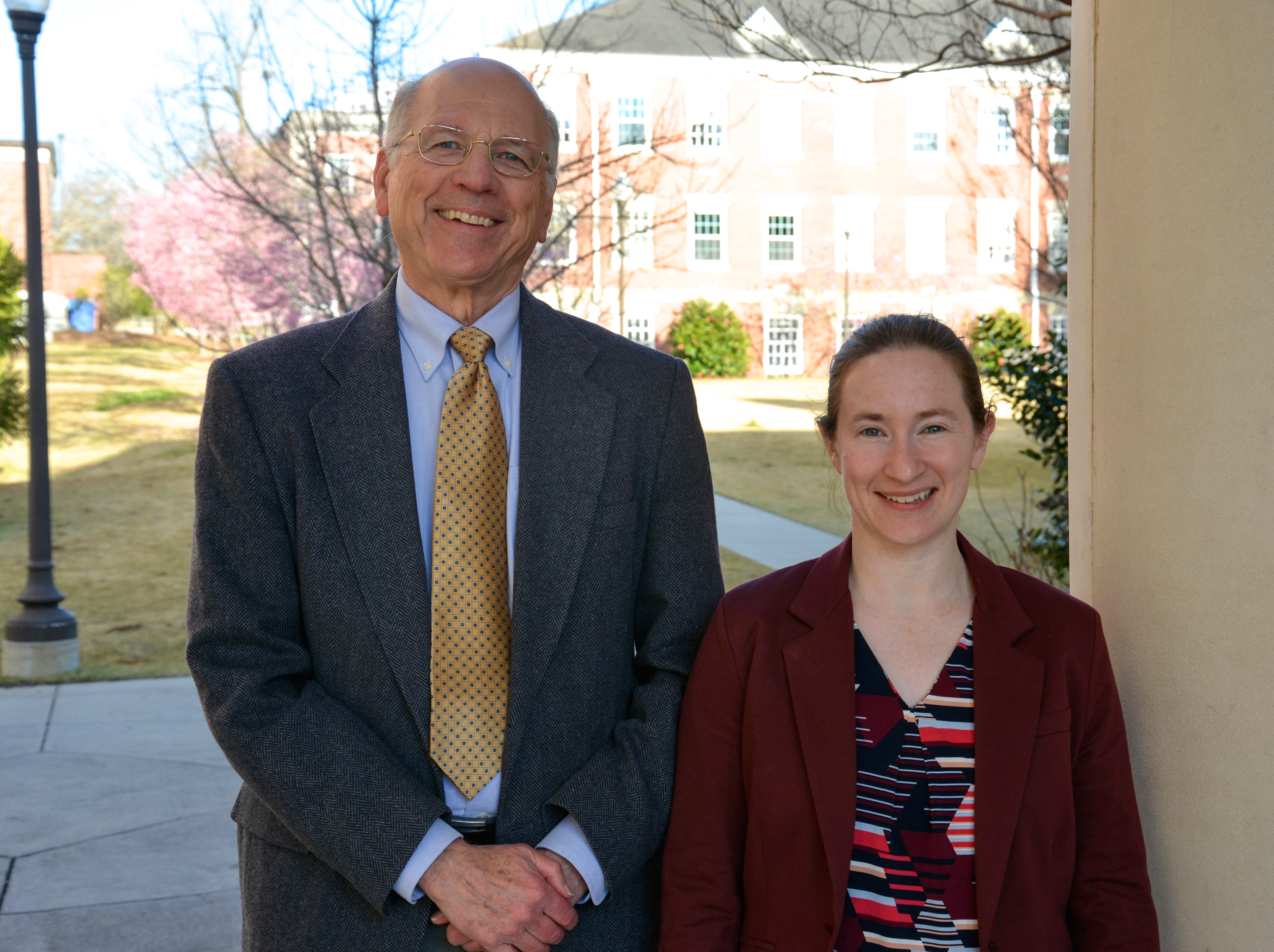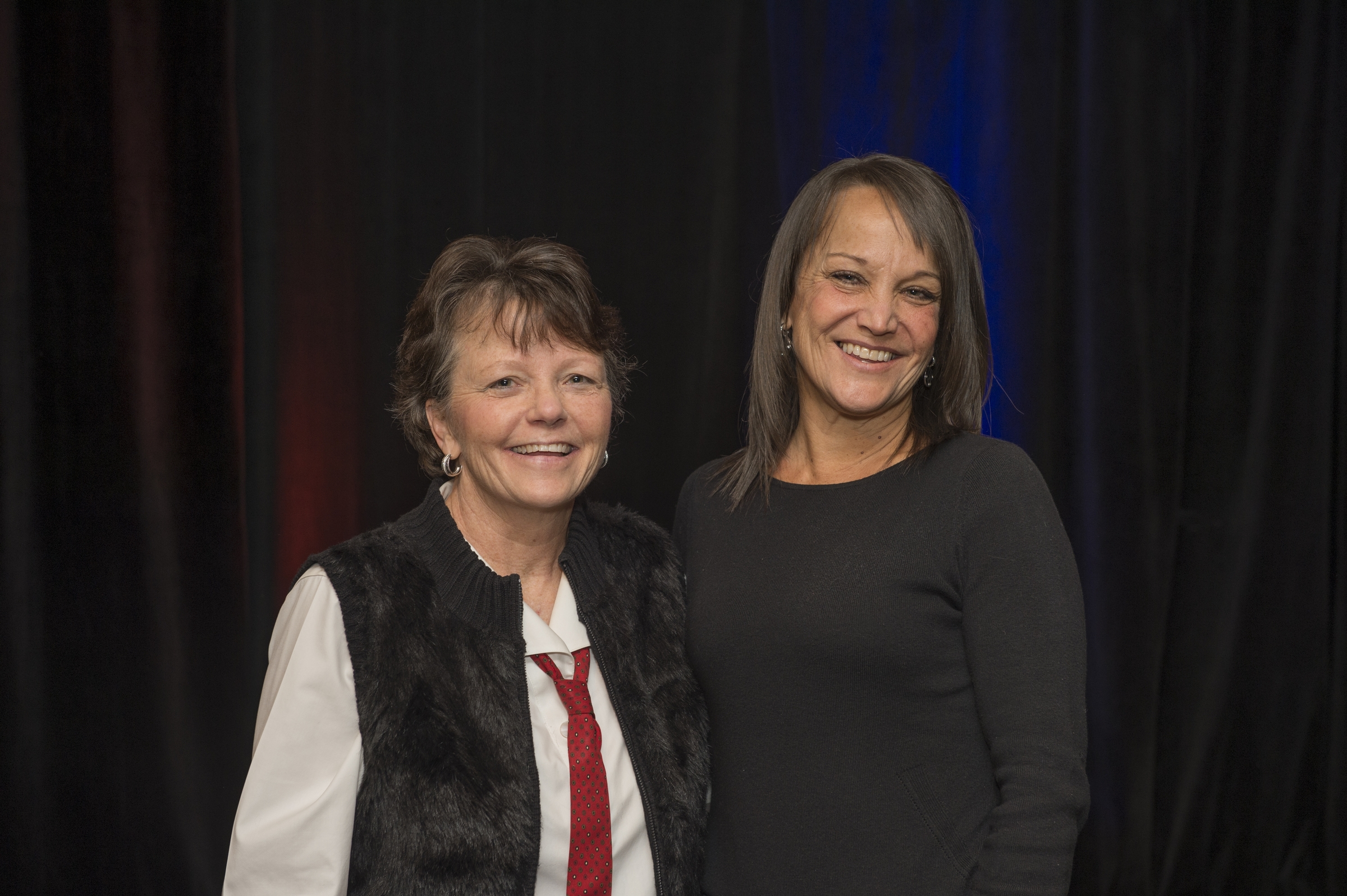
|
|
Crayfish collected in the Tallapoosa River Basin have a mysterious genetic heritage
Crayfish, crawfish, crawdad, mudbug – for most people, these names refer to a delectable crustacean commonly served boiled. For two Auburn University scientists, a crayfish is an enigmatic creature with a genetic heritage that is as much mysterious as it is fascinating.
Biological Sciences Professor Scott Santos, along with Brian Helms, assistant research professor in the Department of Biological Sciences and Auburn University Museum of Natural History, recently completed a study on crayfish in the Tallapoosa River – not the kind of crayfish that are traditionally eaten, although Helms is quick to remind anyone that even tree bark can be eaten. The crayfish species studied by Santos and Helms, the Tallapoosa Crayfish and the Slackwater Crayfish, are species which are native to the Tallapoosa River, look almost identical, and are genetically related. The two species represent a mere snapshot of the enormous amount of aquatic biodiversity present in the Southeast, which includes some 347 recognized species and subspecies of crayfish.
“The Southeast is a global hot spot in terms of the diversity of these animals, and of all of the places in the Southeast, Alabama has the highest crayfish diversity with 86 species and several that have not yet been described,” said Helms.
With the help of Auburn University undergraduate student researchers, crayfish were collected from 30 locations within the upper, little, and middle Tallapoosa River. At each site, teams of scientists used dip-nets and kick seines to determine which crayfish species were present.
Once back in the lab, researchers worked diligently to preserve and separate Tallapoosa Crayfish specimens from Slackwater Crayfish specimens.
To read the full story, click here.
|
|
Inaugural Schneller Frontiers Lecture held March 4

Melanie Sanford, of the University of Michigan, was the inaugural speaker at the Schneller Frontiers Lecture held on March 4 in the Sciences Center Auditorium. At the event, Sanford gave the talk, "Recent Developments in Transition Metal Catalyzed C-H Functionalization." Her research involves developing new chemical reactions that enable the production of pharmaceuticals, agrochemicals and fuels in a more efficient and environmentally friendly manner. She received her B.S. and M.S. degrees at Yale University, and pursued graduate studies at the California Institute of Technology working with Nobel Laureate Professor, Robert Grubbs. Following postdoctoral work at Princeton University, Sanford joined the faculty at the University of Michigan in summer 2003 as an assistant professor of chemistry. She was promoted to associate professor in 2007 and to full professor in 2010. She was named the Arthur F. Thurnau Professor of Chemistry in 2011, and in 2012, was named the Moses Gomberg Collegiate Professor of Chemistry.
The Schneller Frontiers Lectureship is endowed by Stewart Schneller, of the Department of Chemistry and Biochemistry, and his wife. The event recognizes international pioneers in chemistry and biochemistry. Schneller served as dean of the College of Sciences and Mathematics from 1994 to 2010. He continues to teach, along with directing his ongoing research program.
For more information on how you can provide a COSAM lectureship, contact the COSAM Office of Alumni and Development at 334.844.2931 or cosam.development@auburn.edu.
(Pictured: Stewart Schneller, left, with Melanie Sanford)
|
|
Ellis receives Outstanding Faculty Advisor Award

Holly Ellis, associate professor in the Department of Chemistry and Biochemistry in the College of Sciences and Mathematics, received the Outstanding Faculty Advisor Award at the fourth annual Provost Advising Awards Ceremony on Feb. 11.
The award is given to an advisor that has less than 50 percent of their duties as academic advising. She was not only recognized for her advising and teaching skills, but also for contributing to the awards that several of her undergraduate researchers have received.
The awards were given to nominees that exemplify qualities such as interpersonal and human relations skills, professional practices, documented success and documented advisor development.
Ellis was presented the award by Chris Goldsmith, professor in the Department of Chemistry and Biochemistry, who nominated her for the award.
"Holly has intertwined all the scholarly elements of her job into being a wonderful mentor, advisor, researcher and friend to her colleagues and her students," said Kathryn West, faculty coordinator in laboratory sciences.
"The Provost Advising Awards Ceremony provides an opportunity for the university to say thank you not just to the award recipients, but to all academic advisors and faculty advisors on campus who work so diligently to provide for students as they work to achieve their academic goals," said Constance Relihan, associate provost for undergraduate studies, who presented the awards with Provost and Vice President of Academic Affairs, Timothy Boosinger.
(Pictured: Kathryn West, left, faculty coordinator in laboratory sciences, with Holly Ellis at the Provost Advising Awards Ceremony)
|
Upcoming Events:
COSAM Today is a bi-monthly newsletter provided by the College of Sciences and Mathematics Office of Communications and Marketing.
We want to hear from you! Do you have news to share? Let us know by filling out this form. If you have questions, send an email to ceh0012@auburn.edu.
For more news about COSAM, visit the website at www.auburn.edu/cosam.
To unsubscribe from this newsletter, send an email to cosam@auburn.edu.
|



